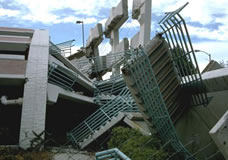Authority
 Understanding the authority of information sources is an important skill of student information scientists. Student information scientists must seeking evidence to corroborate or counter authority. The mature inquirer understands that "truth" often shifts with the situation, the context of discussions, the recency of facts known, and even the definition of terms. The advanced inquirer will not be satisfied with a second opinion and knows that authority may shift over time. The scientist might ask him or herself the following questions:
Understanding the authority of information sources is an important skill of student information scientists. Student information scientists must seeking evidence to corroborate or counter authority. The mature inquirer understands that "truth" often shifts with the situation, the context of discussions, the recency of facts known, and even the definition of terms. The advanced inquirer will not be satisfied with a second opinion and knows that authority may shift over time. The scientist might ask him or herself the following questions:
- Of the websites explored by members of your class, which were considered the most authoritative and why?
- Do these observations provide any clues or give you any notions as to how to judge future websites?
- What criteria would you establish to help you determine the value of future websites?
- How do these criteria apply to other information sources?
Becoming proficient at authority is associated with the following Information Literacy Standards (AASL, 1998):
- The information literate student accesses information efficiently and effectively.
- The information literate student evaluates information critically and competently.
The following examples demonstrate how a student matures as he or she gains experience and expertise.
Earthquake Activity
 As students increase their expertise in the evaluation of web-based resources, they use these experiences to draw conclusions that can be applied in future projects.
As students increase their expertise in the evaluation of web-based resources, they use these experiences to draw conclusions that can be applied in future projects.
For instance, students working on projects related to recent earthquake activity are likely to find many website resources. At the conclusion of the project, a novice inquirer might state that they were able to find “lots of cool stuff” about earthquakes on the Internet, however the student may not be able to identify what made these resources effective.
On the other hand, a more sophisticated information scientist would point to the fact that the most authoritative and timely materials came from the United States Geological Survey website as well as regional government agencies. However even these resources should be double-checked against independent research findings.
Explore Brandon's investigation for more detail.
